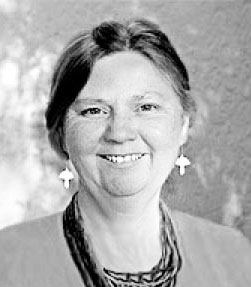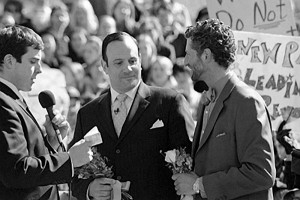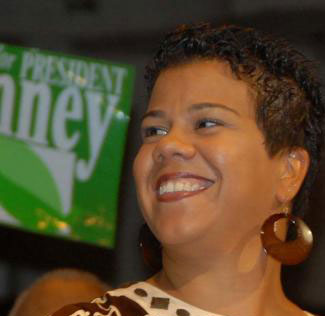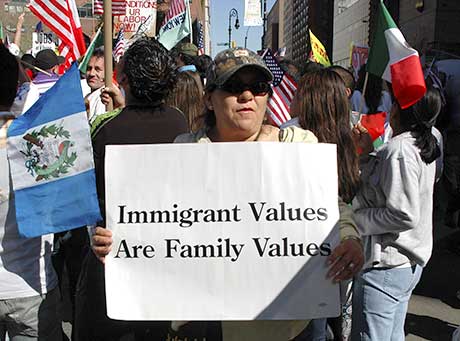As Greens, we are all here to save the planet. I believe that there is no lack of consensus on that. But that could also be said of the membership of the hundreds of NGO’s (Non-Governmental Organizations) which currently exist? The reason we’re are here, in the Green Party, and not in NGO’s is that we see our particular role as being members of a political party, and not in belonging to yet another NGO. This is not to trash the NGO’s — it is just to point out why we are the the Green Party of the United States, and not board members on some 501c3 or 501c4. If we basically duplicate them, then why bother with the extra work?
The reason I have committed my life to the political route is threefold. One is to elect candidates to office, and to replace whoever previously held that seat, whether a democrat or a republican, or whatever. Because they are misusing that seat of power, at whatever level it exists, by not effectively using it to save the planet. I have tried lobbying the folks in the seats of power, I have tried working around them, I have tried the nonpolitical paths– they have their merit, but they are not enough. If the earth is to be saved, then, in addition to changing my own life, and the nonpolitical parts of the world community, the power of governments needs to be redirected. The folks in these seats of power need to be replaced.
It will be a great day, I hope, when elected Greens are in enough seats of power to change policies by majority vote. If that ever happens. But Greens understand the role of a minority voice. Our elected officials can change things through bringing up a bill that would never have surfaced otherwise, and, even if it is subsequently amended, it can have enough of its intent survive to do good. Greens can bring perspectives, that would not otherwise be heard, to amend the bills of others. Greens in office can ferret out the overlay of values, and persuade their colleagues. Greens, once given a seat at the table, have the integrity to say the truth that others are in denial over, so that it eventually surfaces. Greens can even intimidate, undermining assumptions by raising the spectre that if one of us can be elected, then perhaps no seat is “safe.” Greens who are elected can make democracy mean something that it is supposed to have meant all along.
And Greens in office are not in a seat that has been redistricted to make it closed, and disposed, and passed along. Any elected Green had to earn that seat, and keep earning it, so they have a unique relationship with their constituency, a pact of consultation and communication and collaboration. They are not beholden to special interests, and –we might want to remember — are not particularly beholden to a political party either. The candidate stays true to Green values because that is where they came from, not because they fear our identity wars over who is truly green, and who is not. I don’t even want for the Green Party to become so powerful that our candidates fear us, or depend on us, once they are elected. I want us to have their backs, not their noses.
The second reason that the Green Party needs to exist, as a political party, is that candidates have a uniquely powerful voice, even when they are not elected. I have tried being that voice through the ngos I support, and through letters to the editor and guest opinions, and through standing on a street corner holding a sign. I have spoken at rallies, and even through preaching from the pulpit of my church. I have petitioned and protested and blogged and chatted with the public. It all has its effect, but it does not have the effect of running for office. When I ran for office, I personally walked 30,000 households with literature, and talked to whomever was available. I went to forums and was invited to submit to written and oral media interviews. When I would walk into some neighborhoods, I would be viewed suspiciously, to the point of Neighborhood Watch responses, or gangsta drive-bys. But when I extended my hand and said I was there because I was running for office, the suspicion eased up. They were pleased and surprised to see a candidate actually walking their barrio, or their closed community, or whatever. That was the way that democracy was supposed to work, and they wanted to give me a listen.
Candidates get a listen in a way that letter writers and bloggers and sign holders never do, because folks don’t get a chance to vote on the blogger or sign holder. The sign holder is _telling_ them something, not listening. And people don’t want to be told– they want, desperately, for someone to listen. They will listen back, to someone who is not a know-it-all proclaimer, if you demonstrate that you will ultimately let them have the last word, have the decision, about what is the truth, and what should be done, and who should pay, who should change, and what values are important enough to pay for and change for. And being a candidate means that, unlike any other proclaimer, they get to vote on what you are saying, and how you are going about it. They have the last word, so they take what you have to say more seriously, since they will be voting on it. They see it as a duty to pay some attention, just as they see it as you fulfilling your duty to come to them, hat in hand, standing at their door, making your case, and letting them decide. The sign holder and the blogger have a role, but the candidate has a unique and more powerful role, and gets more of a listen.
So the second reason that changing the world through being a political party matters is that political parties are the best way to have candidates, real candidates, and a lot of them. And having candidates is an essential way to be heard, and heard seriously, in a way that changes things, even if it just changes what gets brought up at a debate. At this level, a political party does not even have to get anybody elected, to make a difference. The elected Greens are the cream on the milk. The milk matters just as much.
And the third reason, even before there are candidates and elected officials, is that our struggle, against the array of politics as usual and duopolitistic concentration of power, matters. Every time I ask an ordinary citizen to sign the petition to permit the Green Party to be on the ballot, I am having a conversation with someone, in those five to ten words, about the nature of democracy. A conversation that they otherwise have no immediate cause to think about, and are certainly not encouraged by the powers that be to think about. The conversation is brief, because I have a lot of signatures to get, but that may be for the best. I am not bludgeoning them with new ideas, demanding a complete turnaround from what they thought they knew about democracy. I am planting a persistent seed of question. Why do new parties exist? Why is it so hard for them to get on the ballot? Why do we have to do it over and over again? Is this fair? Is this a good thing? And why do some folks care enough to keep coming out with the petitions, and asking for signatures? When they read in the paper that we have filed a lawsuit — that we had 22,000 signatures, but needed 23,000, it catches their eye, to actually read. To ask, what is going on here?
There is a tendency in human nature to hang around with folks who already agree with us. That is why blogging and standing with a couple of true believers, holding a sign, or what arguing on an e-list among true believers, about who is the truest believer, is so sociable,so reinforcing. It is comforting to be among people who already get it, even if they need correction on the details. It is comforting to be in the position to judge, and rule on the opinions of others, and have them not go away. It is even comforting to be able to drive some of them away, if they get annoying, because there are others who are going to stay. To have others who see the urgency of the planet’s situation, means we are not crazy, that we are right to be concerned, even desperate about it. That is why there are so many ngos, and other groups, and why we, quite understandably, flock to them.
It is different to go out among people who do not seem, at first, to grasp that the world is at stake. Deep inside, we know that it depends on them, the wide public, to turn things around. But they seem so far from being up to the task that it is enough to throw us into despair for the planet. Terrifying despair. Isn’t it enough that we have the answers, and that we are true to what we know, and that we deserve to win, for being right? But they seem to think that we are just pompous know-it-alls who look down on them, and think of them as ignorant masses, rather than real human beings.
Politics is ultimately about persuasion, and that is its strength. Unlike school, it is not about having the right answers. It is about what you do with whatever answers you have. It is, in our instance, about saving the planet. And, if we cannot persuade, then the planet goes down, no matter how right our answers. It is that simple, and that terrifying. And here is another insight. Grassroots Democracy is not about Greens having a unique form of decision making, that only involves ourselves. We can screw it up, or we can perfect such decision making among ourselves, and nobody will much care. Because we are not the grassroots– we are just another closed group. Grassroots Democracy is about believing in people, going to them, at their doorstep, in their parks, asking for their signature, making ourselves vulnerable as candidates. Grassroots Democracy is about speaking our truth, not clothed in the jargon that we have hammered out among ourselves , as though each word were a test of trueGreen, but in the ordinary language that THEY use. It probably even means decapitalizing the very term, and calling it grassroots democracy. Decapitalizing it would make it about them, and not about us.
For these three reasons, being a political party needs to be our first mission, perhaps our only one. We already ARE green, and we don’t need to keep running pop quiz impeachments about it. As a political party, doing what a political party should be doing, we can get over ourselves, get over thinking that WE are the grassroots; we can meet the powers that be at the one place where we can replace them, at the polls; and we can be lifted to small places of great power, where we might actually save the planet.
Now, back to gathering ballot access signatures. AzGP had over 22,000 signatures on the deadline date, when we needed 23,000. We filed a suit in federal court, two days before the deadline, and are still collecting signatures while we wait. Experts have said we have a good case, but we could blow it if we do not keep the ground campaign going. We need help. Come out here and gather signatures with us. Send money. Send chocolate. Whatever. Be a political party.
claudia ellquist
Arizona Green Party Delegate



